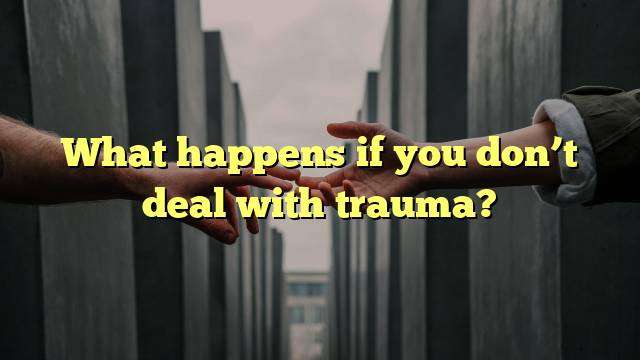What is Trauma?
Trauma is an emotional response to a distressing event. It can be caused by anything from a natural disaster to a life-threatening accident, a physical assault, or any other situation that causes intense fear, helplessness, or horror. It can also be caused by long-term abuse or neglect. Trauma can have a lasting psychological, emotional, and physical impact on survivors, and can lead to a wide range of mental health problems.
What Are the Symptoms of Trauma?
The symptoms of trauma vary from person to person, but some common signs include:
- Flashbacks or nightmares – memories of the traumatic event that can occur without warning and cause intense fear, panic, or distress.
- Intense physical reactions – such as rapid heartbeat and sweating when reminded of the trauma.
- Avoidance – avoiding reminders of the trauma, such as avoiding people, places, and activities that were associated with the event.
- Difficulty sleeping and concentrating – difficulty sleeping, concentrating, or completing tasks.
- Negative thoughts and feelings – feeling detached from others, negative beliefs about yourself or the world, ongoing fear, guilt, or shame.
What Happens If You Don’t Deal with Trauma?
If you don’t address the trauma you’ve experienced, it can have a significant impact on your physical and mental health. Unresolved trauma can lead to physical health problems such as cardiovascular disease, gastrointestinal issues, and chronic pain. It can also lead to mental health problems such as depression, anxiety, and post-traumatic stress disorder (PTSD).
How Can You Deal with Trauma?
There are a number of steps you can take to help you cope with the trauma you’ve experienced. It’s important to remember that every person’s experience of trauma is unique, and what works best for one person may not be the best approach for someone else.
Seek Professional Help
If you’re struggling to cope with your trauma on your own, it may be useful to seek professional help. A psychologist or other mental health professional can provide you with support and guidance as you work through your trauma.
Find Healthy Coping Strategies
Developing healthy coping strategies can help you to manage the difficult emotions associated with trauma. Examples of healthy coping strategies include:
- Mindfulness – learning to be aware of and accept your thoughts, feelings, and physical sensations in the present moment.
- Relaxation – using relaxation techniques such as deep breathing, progressive muscle relaxation, or guided imagery to reduce stress and anxiety.
- Exercise – regular exercise can help to reduce stress and improve your mood.
- Supportive relationships – connecting with supportive friends and family can help to reduce feelings of isolation.
- Counseling – talking to a counselor or therapist can help you to process and manage your trauma.
Conclusion
Trauma is a normal response to a distressing event. If you’ve experienced trauma, it’s important to seek professional help and develop healthy coping strategies to help you manage your feelings. With the right support and guidance, you can learn to cope with your trauma and move forward with your life.


